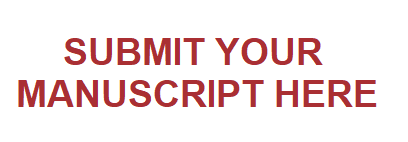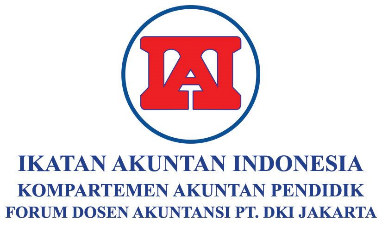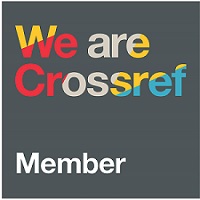About the Journal
Focus and Scope
The Accounting Student Research Journal provides a forum to promote the wide dissemination of knowledge and research in various fields of Accounting and Finance, which include:
- Financial Accounting
- Auditing
- Taxation
- Governmental Accounting
- Accounting information systems
- CSR and Sustainability
- Corporate Governance
- Management Accounting
- Islamic Accounting
- Accounting Education
Peer Review Process
The practice of peer review is intended to ensure that only good science is published. As an objective method to guarantee excellence in scientific publishing, it has been adopted by all leading scientific journals. Our reviewers play an important role in maintaining the standards of the Accounting Student Research Journal
Initial Manuscript evaluation
The editors first evaluate all submitted manuscripts. It's rare, but it's possible that extraordinary scripts are received at this stage. Manuscripts rejected at this stage are not sufficiently original, have serious scientific defects, or fall outside the aims and scope of the journal. Those who meet the minimum criteria are usually forwarded to at least two expert reviewers for review.
Authors who are rejected at this stage will usually be notified within three weeks of being accepted.
Type of peer review
The Accounting Student Research Journal uses a 'double-blind' review, in which the reviewer remains anonymous from the author during and after the review process, while the identity of the author is also unknown to the reviewers.
How the reviewer is selected
Whenever possible, reviewers are matched with papers according to their expertise.
Referee report
Reviewers are asked to evaluate whether the manuscript:
- Original in thought and method (including data)
- Methodologically sound
- Have results that are clearly presented and support conclusions
- References to previous relevant jobs correctly and completely
- Follow appropriate ethical guidelines, especially with regard to plagiarism
- Clearly increase knowledge and field development
How long does the review process take?
The time required for the review process depends on the response of the referee. For the Accounting Student Research Journal, the average time for the first round of review processes is about 6 weeks, with a maximum of four months.
Final report
The final decision to accept or reject the manuscript will be sent to the authors together with the recommendations made by the reviewers, including (if applicable) the final verbatim comments.
The Editor-in-Chief's decision is final
The reviewer advises the Editor-in-Chief, who is responsible for the final decision to accept or reject the article.
Publication Frequency
This journal is published twice a year in March and September. Articles can be sent at any time, and the editor will publish according to the schedule
Open Access Policy
This journal provides immediate open access to its content on the principle that making research freely available to the public supports a greater global exchange of knowledge.
Publication Fee
Accounting Student Research Journal charges the following publication fee:
Article submission: 0.00 (USD/IDR)
Article publication: 0.00 (USD/IDR)
Publication Ethics
The Accounting Student Research Journal is a peer-reviewed journal published two times a year. This statement briefly describes the ethical behavior of all parties involved in the off/online act of publishing articles in journals, including authors, editors, peer-reviewers, and publishers (Faculty of Economics and Business, Universitas Pembangunan Nasional Veteran Jakarta). This statement is issued in accordance with the COPE Best Practice Guidelines for Journal Editors.
Journal Publication Ethics Guidelines
The publication of an article in a peer-reviewed Journal of Accounting Student Research Journal is an essential building block in the development of a coherent and respected network of knowledge. It is a direct reflection of the quality of the work of the authors and the institutions that support them. Peer-reviewed articles support and embody the scientific method. It is therefore important to agree upon standards of expected ethical behavior for all parties involved in the act of publishing: the author, the journal editor, the peer reviewer, the publisher, and the society.
Faculty of Economics and Business Universitas Pembangunan Nasional Veteran Jakarta as the publisher of the Accounting Student Research Journal takes its duties of guardianship over all stages of publishing seriously and we recognize our ethical and other responsibilities. We are committed to ensuring that advertising, reprint, or other commercial revenue has no impact or influence on editorial decisions.
Publication Decision
The editors of the Accounting Student Research Journal are responsible for deciding which articles submitted to the journal should be published. The validation of the work in question and its importance to researchers and readers should always drive such decisions. Editors may be guided by the discretion of the journal's editorial board and limited by applicable legal requirements regarding defamation, copyright infringement, and plagiarism. Editors may consult other editors or reviewers in making this decision.
Justice
An editor evaluates manuscripts at all times for their intellectual content regardless of the author's race, gender, sexual orientation, religious beliefs, ethnic origin, nationality, or political philosophy.
Confidentiality
Editors and any editorial staff may not disclose any information about submitted manuscripts to anyone other than the respective authors, reviewers, prospective reviewers, other editorial advisors and publishers, as appropriate.
Disclosure and Conflict of Interest
Unpublished material disclosed in a submitted manuscript may not be used in the editor's own research without the written consent of the author.
Duties of Reviewers
Contribution to Editorial Decisions
The Accounting Student Research Journal uses a double-blind review process. Peer reviews assist editors in making editorial decisions. Editors communicate with authors to improve paper quality standards.
Promptness
Any selected referee who feels unqualified to conduct a review of the research reported in a manuscript must notify the editor and withdraw from the review process. The editor immediately sent the script to another referee.
Confidentiality
Any manuscript received for review must be treated as a confidential document. They may not be shown or discussed with others except as permitted by the editor.
Standars of Objectivity
Review must be done objectively. Personal criticism of the author is inappropriate. Referees must express their views clearly with supporting arguments.
Acknowledgment of Sources
Reviewers should identify relevant published work that has not been cited by the authors. Any statement that an observation, derivation, or argument had been previously reported should be accompanied by the relevant citation. A reviewer should also call to the editor's attention any substantial similarity or overlap between the manuscript under consideration and any other published paper of which they have personal knowledge.
Disclosure and Conflict of Interest
Privileged information or ideas obtained through peer review must be kept confidential and not used for personal advantage. Reviewers should not consider manuscripts in which they have conflicts of interest resulting from competitive, collaborative, or other relationships or connections with any of the authors, companies, or institutions connected to the papers.
Duties of Authors
Reporting standards
Authors should present an accurate account of the work performed as well as an objective discussion of its significance. Underlying data should be represented accurately in the paper. A paper should contain sufficient detail and references to permit others to replicate the work. Fraudulent or knowingly inaccurate statements constitute unethical behavior and are unacceptable.
Originality and Plagiarism
The authors should ensure that they have written entirely original works, and if the authors have used the work and/or words of others that this has been appropriately cited or quoted.
Multiple, Redundant, or Concurrent Publication
An author should not, in general, publish manuscripts describing essentially the same research in more than one journal or primary publication. Submitting the same manuscript to more than one journal concurrently constitutes unethical publishing behavior and is therefore unacceptable.
Acknowledgment of Sources
Proper acknowledgment of the work of others is obligatory. Authors should cite publications that have been influential in determining the nature of current work.
Authorship of the Paper
Authorship should be limited to those who have made a significant contribution to the manuscript. All those who have made very significant contributions should be listed as co-authors. Where there are others who have participated in certain substantive aspects of the research project, they should be acknowledged or listed as contributors. The corresponding author should ensure that all appropriate co-authors and no inappropriate co-authors are included on the paper and that all co-authors have seen and approved the final version of the paper and have agreed to its submission for publication.
Disclosure and Conflicts of Interest
All authors should disclose in their manuscripts any financial or other substantive conflicts of interest that might be construed to influence the results or interpretation of their manuscript. All sources of financial support for the project should be disclosed.
Fundamental Errors in Published Works
When an author discovers a significant error or inaccuracy in his/her own published work, it is the author’s obligation to promptly notify the journal editor or publisher and cooperate with the editor to retract or correct the paper.
Allegations of Research Misconduct
Research misconduct means fabrication, falsification, citation manipulation, or plagiarism in producing, performing, reviewing research, writing an article by authors, or reporting research results. When authors are found to have been involved with research misconduct or other serious irregularities involving articles that have been published in scientific journals, Editors have a responsibility to ensure the accuracy and integrity of the scientific record.
In cases of suspected misconduct, the Editors and Editorial Board will use the best practices of COPE to assist them to resolve the complaint and address the misconduct fairly. This will include an investigation of the allegation by the Editors. A submitted manuscript that is found to contain such misconduct will be rejected. In cases where a published paper contains such misconduct, a retraction can be published and linked to the original article.
The first step involves determining the validity of the allegation and assessing whether the allegation is consistent with the definition of research misconduct. This initial step also involves determining whether the individuals alleging misconduct have relevant conflicts of interest.
Suppose scientific misconduct or the presence of other substantial research irregularities is a possibility. In that case, the allegations are shared with the corresponding author, who requested to provide a detailed response on behalf of all of the co-authors. After the response is received and evaluated, additional review and involvement of experts (such as statistical reviewers) may be obtained. For cases in which it is unlikely that misconduct has occurred, clarifications, additional analyses, or both, published as letters to the editor, and often including a correction notice and correction to the published article are sufficient.
Institutions are expected to conduct an appropriate and thorough investigation of allegations of scientific misconduct. Ultimately, authors, journals, and institutions have an essential obligation to ensure the accuracy of the scientific record. By responding appropriately to concerns about scientific misconduct and taking necessary actions based on evaluating these concerns, such as corrections, retractions with replacement, and retractions, the Accounting Student Research Journal will continue to fulfill its responsibilities ensuring the validity and integrity of the scientific record.
Policy of Screening for Plagiarism
Papers submitted to the Accounting Student Reseacrh Journal will be screened for plagiarism using Turnitin. The similarity index of paper for reviewing process is not more than 25 percent. Papers leading to plagiarism or self-plagiarism will be immediately rejected.
All authors are suggested to use plagiarism detection software to do the similarity checking before submitting their manuscript to the journa.
Sponsors
Universitas Pembangunan Nasional Veteran Jakarta













